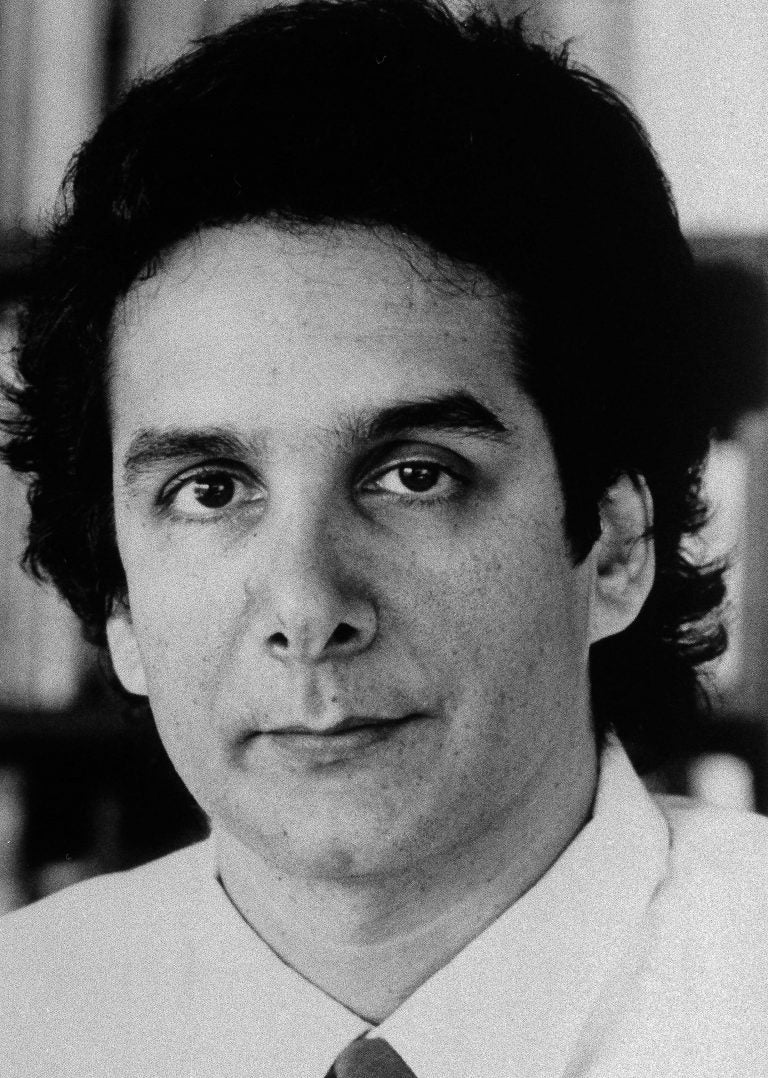RIP Charles Krauthammer, who warned us all

Charles Krauthammer in 1987. (AP Photo)
Charles Krauthammer, the conservative columnist who died yesterday, just a fortnight after posting his eloquent farewell, was gifted in his ability to draw readers who disagreed with his opinions. I was one such devotee.
I intend it as the highest praise when I say that I rarely agreed with him. He was far to my right on everything from abortion to Obama, and his enthusiasm for Bush’s Iraq invasion (which he foresaw as “the three-week war”) bugged me the most. Yet for 30 years I nevertheless devoured his work — for the snap and concision of his sentences, his low-key articulation, and his capacious intellect.
And then, as a bonus, he turned his attention to Donald Trump.
Today, with two years of hindsight, it makes perfect sense that a conservative columnist who prized civil argument and intellectual rigor, who was himself temperamentally moderate, and whose goal, in the words of friend and fellow conservative Peter Wehner, “was to better understand reality,” would be appalled by a lying vulgarian who wars against decency and dignity. But when Krauthammer first took aim at Trump — unlike his more cowardly conservative brethren — it was breath of fresh air in the burgeoning Republican pollution.
In the summer of ’16, he wrote this about Trump’s character:
“This is beyond narcissism. I used to think Trump was an 11-year-old, an undeveloped schoolyard bully. I was off by about 10 years. His needs are more primitive, an infantile hunger for approval and praise, a craving that can never be satisfied. He lives in a cocoon of solipsism where the world outside himself has value — indeed exists — only insofar as it sustains and inflates him … (He) is dangerously out of the mainstream and temperamentally unfit to command the nation.”
We can’t say we weren’t warned.
Trump quickly confirmed Krauthammer’s character assessment by retaliating this way: “I get called names by a guy that can’t buy a pair of pants.” That insult made no sense — unless you knew (as Trump did) that Krauthammer had no power over his legs. He’d been confined to a wheelchair since sustaining a head injury in a swimming pool at the age of 22.
Unlike the multitudes on the right who fear Trump’s bullying, Krauthammer couldn’t have cared less. He detested Trump’s incessant tweets, but said so in his inimitable manner. Tweets, he wrote, “erase whatever membrane normally exists between one’s internal disturbances and their external manifestations.”
And last summer, after the release of Donald Jr.’s giddy email (“I love it”) about the prospects of obtaining Russian dirt on Hillary Clinton, Krauthammer lowered the boom. He said that bungled collusion is still collusion. He was not a Hillary fan; nevertheless, he clearly recognized that the evidence of anti-Hillary collusion was “damning.” In July ’16, he assessed Junior’s Trump Tower meeting with Russian intermediaries:
“Once you’ve said ‘I’m in,’ it makes no difference that the meeting was a bust, that the intermediary brought no such goods. What matters is what Donald Jr. thought going into the meeting, as well as Jared Kushner and then-campaign manager Paul Manafort, who were forwarded the correspondence, invited to the meeting, and attended … (The) three top Trump campaign officials were ready to play …
“It’s rather pathetic to hear Trump apologists protesting that it’s no big deal … It’s one thing to be open to opposition research dug up in Indiana. But not dirt from Russia, a hostile foreign power that has repeatedly invaded its neighbors (Georgia, Crimea, eastern Ukraine), that buzzes our planes and ships in international waters, that opposes our every move and objective around the globe … I leave it to the lawyers to adjudicate the legalities of unconsummated collusion. But you don’t need a lawyer to see that the Trump defense — collusion as a desperate Democratic fiction designed to explain away a lost election — is now officially dead.”
One month later, after Trump semi-defended the white supremacists and neo-Nazis who’d marched in Charlottesville, Krauthammer called Trump “a moral disgrace.” He surfaced on Fox News (where he had a regular gig) to dispute the standard Fox claim that the media was picking on Trump. Krauthammer begged to differ:
“This is not a ‘media’ story. This is a presidential story. What is shocking is that the president of the United States did not have the instinctive, reflexive automatic response you would expect of any American leader, in what we saw across the spectrum in American leadership and among the populace, in being utterly revolted by these right-wing, white supremacists, neo-Nazi groups. But the president did not do what was absolutely natural — that’s what makes it a story … It seems to me you start by denouncing what is obvious. And the fact that the president did not … is simply stunning.”
But in his final political column — this was last summer, as illness tightened its grip — he refused to despair. Even though “Trump is a systemic stress test” for the America we love, “the institutions of both political and civil society are holding up well.” He had abiding faith that “the sinews of our democracy” will thwart “the careening recklessness of this presidency.” I only wish he could’ve lived to see faith rewarded. If indeed it will.
WHYY is your source for fact-based, in-depth journalism and information. As a nonprofit organization, we rely on financial support from readers like you. Please give today.




